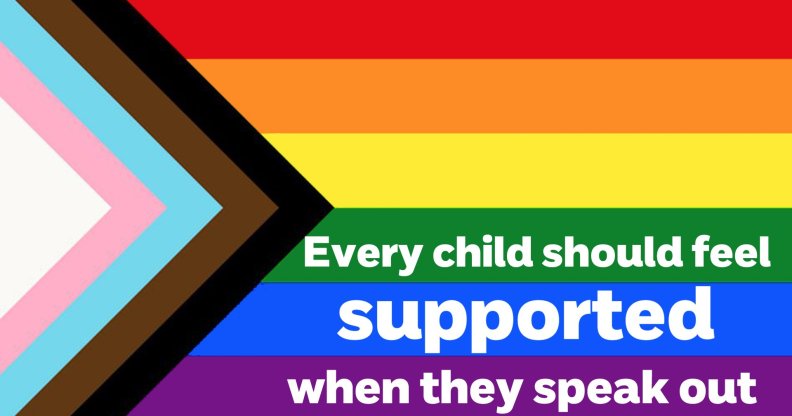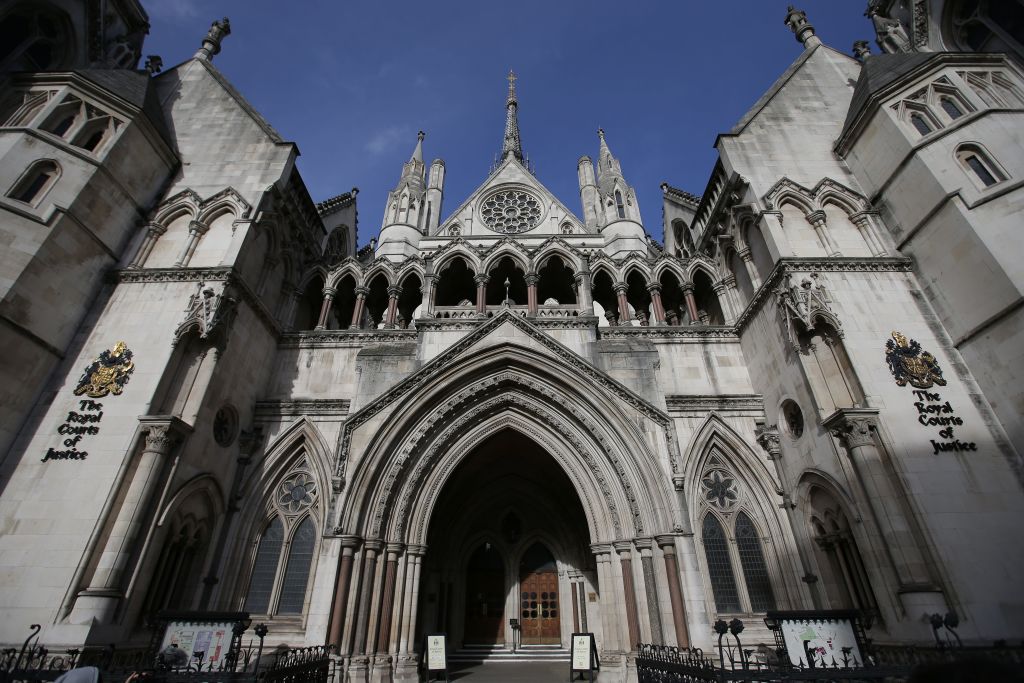UK’s biggest children’s charities including NSPCC and Barnardo’s unite in solidarity with trans kids and their right to healthcare

The charities made their support for trans kids clear (NSPCC)
The UK’s biggest children’s charities have united to make clear their support for transgender children, as a judicial review threatens the future of healthcare for young people.
The High Court began to hear a landmark judicial review case on Wednesday (October 7) seeking to block the use of puberty blockers by young transgender people.
The case was brought by Keira Bell, a woman who previously identified as a transgender man, who argues that trans children should not be able to consent to receive medical treatment.
Campaigners fear that if Bell prevails, the case could undermine the principle of Gillick competence — the ability of young people to consent to their own medical treatment — which is vital for a range of medical issues including access to abortion.
Trans children need support, understanding, and acceptance, charities say.
In a joint statement released as the case is heard, the UK’s largest children’s charities — Barnardo’s, NSPCC, National Children’s Bureau and The Children’s Society — issued a joint statement in support of trans people.
The charities said: “As children’s charities, we believe in, support, and stand in solidarity with all children and young people who are trans, non-binary, gender non-conforming, or exploring their gender identity. We celebrate who they are and work with them to help them reach their potential.
“On matters of health treatment all children have the right to be listened to independently and have their wishes taken seriously — this includes children and young people who identify as trans and who may be undergoing hormone treatment therapy.”

The Royal Courts of Justice building, which houses the High Court of England and Wales (DANIEL LEAL-OLIVAS/AFP via Getty Images)
The statement continues: “Many trans children and young people feel lonely and isolated due to a lack of support, understanding, and acceptance. Denying them agency has the potential to compound this and can put them at high risk of mental illness and emotional distress, potentially affecting their long-term future.
“But we also know that with the right support from the adults in their lives, trans young people can lead happy and healthy childhoods. It’s vital that trans children and young people feel listened to, understood and accepted.”
Puberty blockers case is being argued by lawyer known for taking on anti-abortion cases.
The lawyer representing Bell in court, Paul Conrathe is best known for bringing numerous cases seeking to restrict abortion access.
He has applied the same “regret” narrative in Bell’s case to abortion care, in May filing a lawsuit on behalf of a woman who said she regretted accessing abortion.
In that case Conrathe argued that women of any age are “incapable of giving fully informed consent” for abortion unless they are given literature claiming that “preborn babies are capable of feeling pain” — a common myth often spread by anti-abortion activists.
Conrathe was also previously part of a 2001 challenge opposing an equal age of consent for gay sex.
A previous Dignity in Dying report linked the lawyer to “networks of anti-choice activists in the UK” that have “worked together for many years, amplifying the voices and influence of certain individuals and organisations, not just on the assisted dying debate but in some cases the debates on abortion, equal marriage and other causes.”
It notes of his background: “[Conrathe] represented the Society for the Protection of Unborn Children (SPUC) in Diane Pretty’s legal case in 2001, represented Stephen Hone in a case in 2001 where he sought an injunction against his ex-partner to prevent her from having an abortion and in 2005 represented Leslie Burke in a case against the General Medical Council’s guidelines on artificial nutrition and hydration.
“Also in 2005 he represented the Christian Institute, which was challenging the BBC’s decision to broadcast Jerry Springer – The Opera until and unless it issued an apology for offending Christians.”

